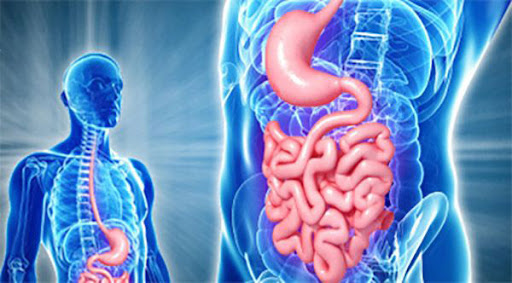Benefit of Private Gastroenterologist London | Digestive Health
Digestive problems can be caused by many conditions. Chronic pain in the belly is one warning sign that something is wrong. Other symptoms include bloating, gas, and diarrhea. These are all reasons to visit a gastroenterologist. These doctors can treat disorders that affect the digestive tract including the stomach, colon, and pancreas. If you notice any of the telltale symptoms, it may be time to check in with a Private gastroenterologist.
Heartburn
Heartburn is pain or burning in the chest or throat. Acid from the stomach can cause heartburn. This tube connects the stomach to the mouth. Heartburn can happen to anyone at any time. This can be treated with over-the-counter medications or it can go away by itself. Symptoms that last more than two weeks could indicate a more serious condition, such as gastroesophageal acid disease (GERD).
Acid from the stomach can cause GERD. GERD is more common in people who smoke and are overweight. The condition is more common in pregnant women. GERD can be treated with medication. Severe cases may need surgery. Untreated GERD may lead to more severe problems such as chronic inflammation and breathing problems.
Gallstones
Gallstones are small, hard, nuggets formed in the gallbladder. This organ is located in the abdomen. Gallstones can be as small as a grain or large as a golfball. One large stone may be all that is needed. Some people have multiple stones. Sudden pain on the right side of your abdomen could be a gallstone. Gallstone pain disappears once the gallstones move. Gallstones develop because of imbalances in the substances that form bile. This is the liver's digestive liquid. These imbalances are not understood by doctors.
Gallstones are more common in obese people and pregnant women than in other groups. Gallstones are more common as you age. Gallstones can be passed on to others by anyone who has already had one. Gallstones can be fatal. Many people have to have their gallbladder removed. Sometimes, medication can dissolve the stones.
Lactose Intolerance
Lactose intolerance is a condition where people experience discomfort after eating milk or dairy products. The sugar lactose can be found in milk. To help break down milk products such as cheese and yogurt, the body makes lactose.
People with lactose intolerance can't digest small amounts of lactose. This can cause gas, bloating, stomach pain, diarrhea, gas, upset stomach, and even belly pain. These symptoms can usually be noticed up to two hours after eating dairy. They can be mild or severe. Gastroenterologists can test for lactose intolerance. Your diet may need to be modified or supplemented.
Celiac Disease
Celiac disease, a genetic condition that affects the immune system, is known as "Celiac Disease". Celiac disease patients must avoid gluten. Gluten can be found in wheat, barley and rye. Gluten can also be found in certain vitamins, supplements, and medicines. Gluten can damage the small intestine of celiac patients. This can cause pain and diarrhea. Celiac disease can be diagnosed by a blood test. To determine if there is damage, a gastroenterologist might need to inspect a small intestine sample.
Gluten sensitivity is not the same thing as celiac disease. Both conditions have similar symptoms. The main difference is that people with gluten sensitivity don't develop damage in their small intestine. Completely avoiding gluten can ease symptoms of celiac disease and gluten sensitivity. Additional treatment may be necessary for intestinal damage.
Inflammatory Bowel Disease
Sometimes the immune system mistakenly identifies dangerous germs in food or other substances in the digestive track. It can also cause damage to healthy tissue. This causes inflammatory bowel disease (IBD). IBD can be caused by several conditions that cause chronic inflammation of the digestive tract. IBD can cause severe symptoms such as diarrhea, stomach pain, swelling, nausea, vomiting, and even joint pain. The symptoms may improve over time, but then they can return in a flare.
The most common IBDs are ulcerative colitis and Crohn's disease. Ulcerative colitis is a condition that affects the large intestinal tract. Crohn's disease affects anywhere along the digestive tract. Doctors can diagnose IBD by using blood tests, stool samples, Xrays and CT scans. So does endoscopy. This involves inspecting the inside of your intestines using a scope equipped with a specialized camera.
The treatment options include medication, surgery and lifestyle changes. IBD is not the same as IBS, or irritable bowel syndrome. Although some symptoms may be similar, IBS doesn't cause any damage to the digestive tract due to inflammation.
Colon Cancer Screening
Even if you don’t have symptoms, a gastroenterologist will be able to look for signs and symptoms of certain diseases such as colon cancer. For a colonoscopy, for instance, the doctor will insert a thin tube with a tiny camera into the rectum to see the inside of the colon. Stool samples and imaging scans can also help to diagnose cancer.
Abnormal growths in the colon or rectum are often responsible for developing colon cancer. Doctors can remove these abnormal growths before they become cancerous by catching them early. Early detection and diagnosis of cancer saves lives. By the age of 50, all people should start getting regular screenings for colon cancer.



Comments
Post a Comment